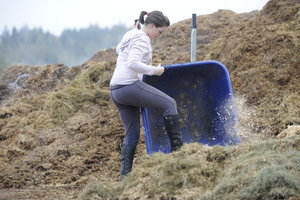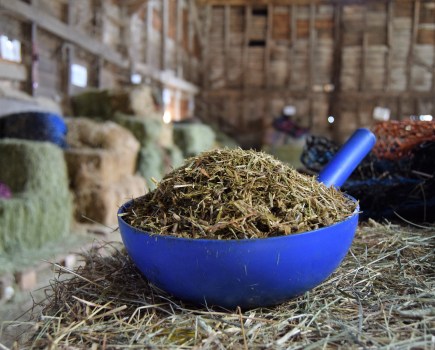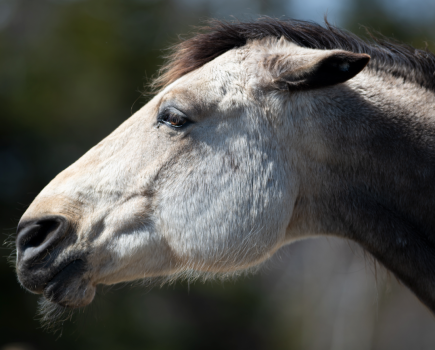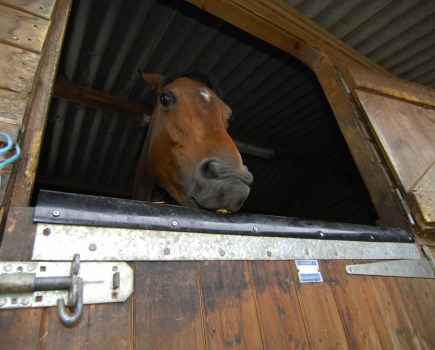Straw has been used as horse bedding for years. It’s warm, allows urine and other liquids to drain away, provides a comfortable bed, and is usually cheaper than shavings, pellets, paper and other types of horse bedding — all important factors to consider when taking care of a horse in winter. Studies have shown that there are benefits for horses bedded on straw, but there’s also an increasing focus on the effect that dust in straw and hay has on the respiratory health of horses.
A 2014 study found that horses bedded on straw and fed non-steamed hay were exposed to 17 times more dust than horses who were bedded on shavings and fed steamed hay. Maintaining respiratory health is a stable management priority, particularly for performance horses, so it isn’t difficult to see why training yards have avoided straw in recent years and also started steaming hay to eliminate the majority of respirable particles.
Respiratory disorders in people who own, ride and care for horses
A separate study in 2014 examined the prevalence of respiratory disorders in people working in the equine industry, considering the time they spent at the yard, the use of hay and straw and the stable environment they were working in.
Prior to this study there had been very little published information on the prevalence of respiratory disorders within the UK horse owning population, or on any relationships that might exist between stable management activities and the incidence of respiratory disease.
The incidence of respiratory diseases in stable staff increased among those who filled haynets with forage that had not been steamed, swept an enclosed stable complex twice a day or worked with horses in enclosed stables bedded with straw – certainly nothing unusual or rare in the present day.
Stable management that manages dust levels to help reduce the incidence of respiratory disorders in not only the horses, but also the staff who care for them, will be crucial to ensure yards are considered safe places for people to carry out their day-to-day work.
Facts and figures
- The results of a separate study showed that 84% of horses suffered from Inflammatory Airway Disease (IAD), which is mainly caused by the respirable dust found in hay and straw.
- It is estimated that there are 3.5 million people working in the equine industry in the United Kingdom, meaning that if that figures above are extrapolated, 1.7 million stable staff could be suffering from a respiratory disease.
- Nearly half of those who responded to the 2014 study (46%) had suffered a respiratory disorder, and 52% suffered from asthma, a condition which can be life-threatening if not managed and treated properly.
For more information on straw and its respiratory effects, visit the haygain website.









